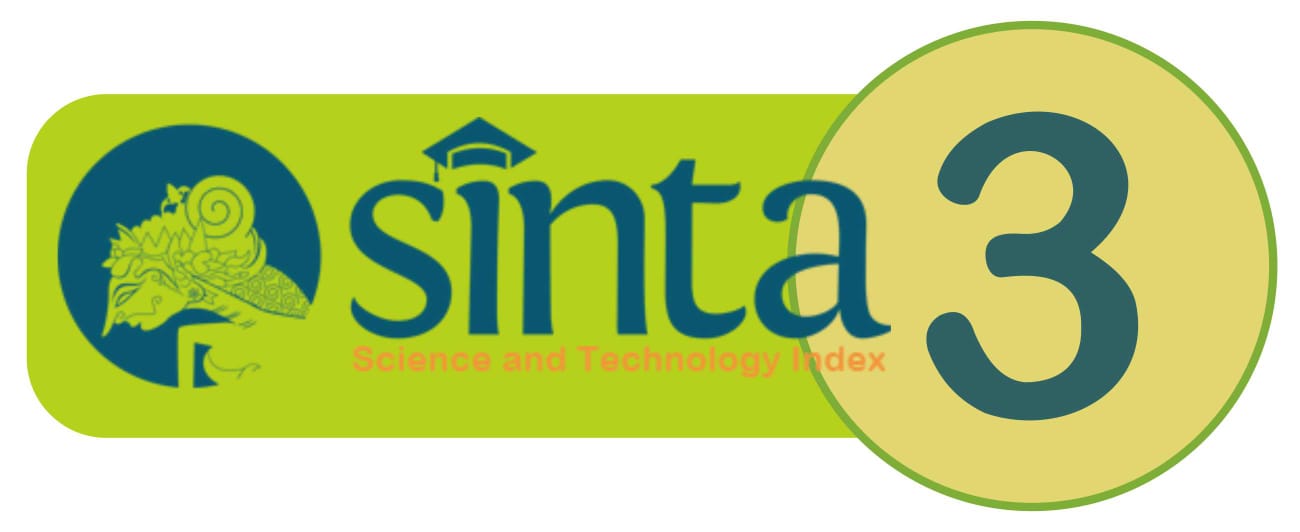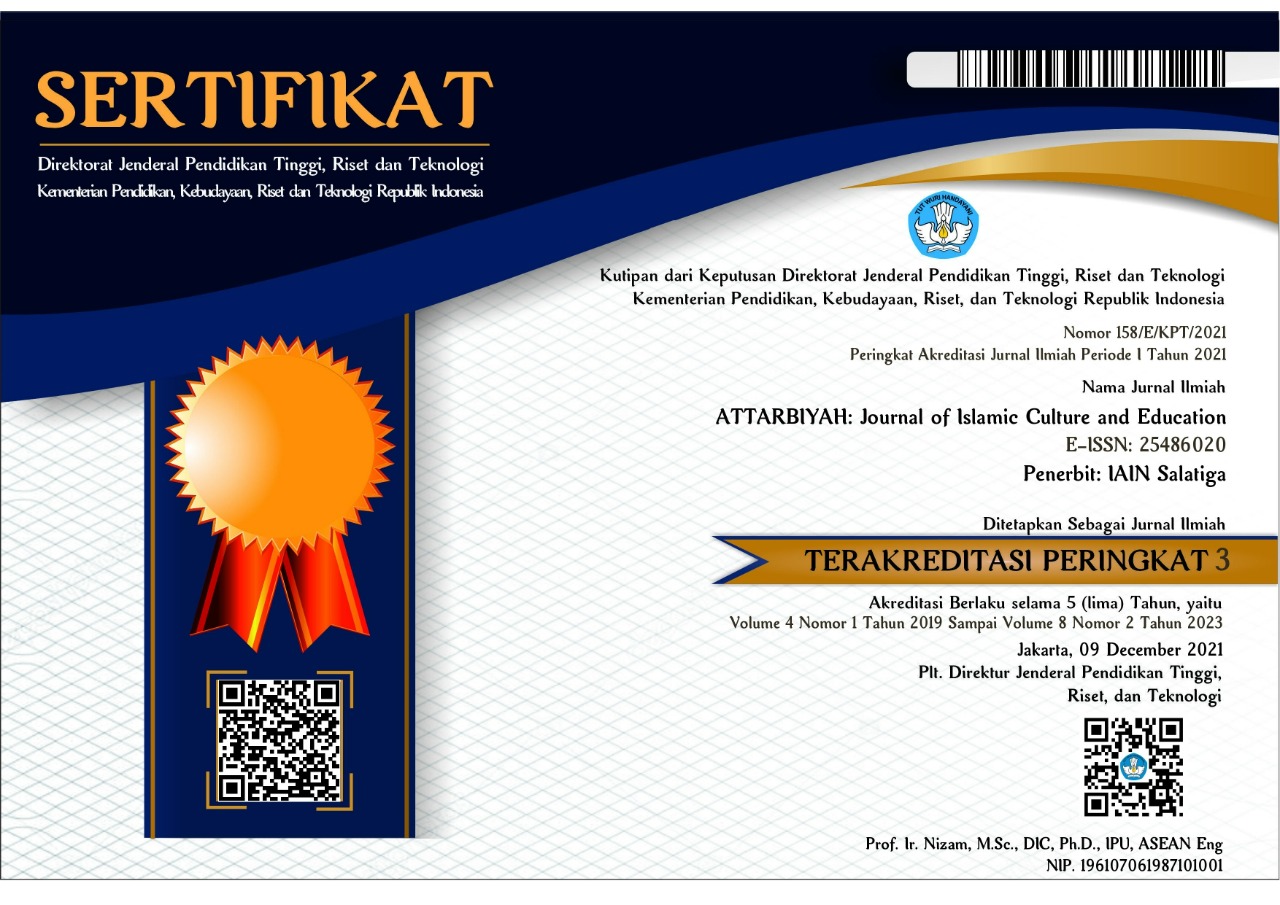Student learning independence using the application of the recitation method during online learning through the Google Classroom App
Abstract
In an effort to reduce increasing number of Covid-19 spread, currently, majority of
students from early childhood education to universities are undergoing online learning. There are various learning management systems (LMS) as well as social media digital platforms that can be utilized by teachers and students to carry out online learning, one of which is Google Classroom. By applying the recitation or assignment method through Google Classroom, it is found that student learning independence has not been formed optimally. This research aims to describe how student learning independence is viewed from the application of the assignment method in the specific case of Islamic education subject during online learning through Google Classroom. This is descriptive qualitative research which collects data from interviews with six subjects who regularly use Google Classroom application as a learning medium and assignments. The six subjects interviewed consist of teachers and college students. This study shows that Google Classroom is considered quite effective as an assignment medium because it could be accessed anywhere and anytime and saved storage. However, in terms of independence
student skill, it is tend to not work as expected. Therefore, more efforts are required by the teachers to give students motivation and increase the awareness to develop independent learning skills of students.
Keywords
Full Text:
PDFReferences
Ali, M. & M. Asrori. (2005). Psikologi Remaja: Perkembangan Peserta Didik. Jakarta: PT Bumi Aksara.
Ambarjaya, B. (2012). Psikologi Pendidikan dan Pengajaran (Teori dan Praktik). Yogyakarta: CAPS.
Aziz, A. & Basry. (2017). Hubungan Antara Kompetensi Guru dan Kepercayaan Diri dengan Kemandirian Siswa SMP N 2 Pangkalan Susu. Jurnal Pshycomutiara, 1 (1). 15-29.
Darajat, Z. et. al. (2009). Ilmu Pendidikan Islam. Jakarta: Bumi Aksara.
Gea, A.A. et al. (2003). Character Building 1 Relasi Dengan Diri Sendiri (edisi revisi). Jakarta: PT Elex Media Komputindo.
Gunawan, F.I., & Stefani G. S. (2016). Pengembangan Kelas Virtual dengan Google Classroom dalam Keterampilan Pemecahan Masalah Topik Vektor Pada Siswa SMK untuk Mendukung Pembelajaran. Prosiding Seminar Nasional Etnomatnesia, 340-348.
Hamalik, O. (2007). Dasar-dasar Pengembangan Kurikulum. Bandung: PT Remaja Rosdakarya.
Indonesia Approach Education. (2020). https://www.ia-education.com/2020/07/09/ pentingnya-membentuk-kemandirian-belajar-anak-di-masa-pandemik/.
Lempe, T. & Hendrik P. T. (2018). “Peran Guru dalam Meningkatkan Kemandirian Belajar Peserta Didik Kelas V SD Inpres Samberpasi.” Jurnal Metodik Didaktik 14 (1).
Melania, R.A.I. & Fahmi W. (2016). Penerapan Metode Resitasi dalam Pembelajaran Keterampilan Menulis Bahasa Jerman Kelas XI Bahasa SMA 13 Negeri Surabaya. Laterne (5) 2. 1-7.
Muhaimin. (2007). Pengembangan Kurikulum Pendidikan Agama Islam. Jakarta: Raja Grafindo Persada.
Nurdin, A. (2016). Inovasi Pembelajaran Pendidikan Agama Islam Era Information and Communication Technology. TADRIS, 11(1): 49–64.
Prawiradilaga, D.S. (2013). Mozaik Teknologi Pendidikan: E-Learning Edisi Pertama. Jakarta: Kencana.
DOI: https://doi.org/10.18326/attarbiyah.v6i1.47-60
Refbacks
- There are currently no refbacks.

ATTARBIYAH: Journal of Islamic Culture and Education by http://attarbiyah.iainsalatiga.ac.id/ is licensed under a Creative Commons Attribution-ShareAlike 4.0 International License
----------------------------------------------------------
ATTARBIYAH : Journal of Islamic Culture and Education IAIN SALATIGA p-ISSN: 0215-9996, e-ISSN: 2548-6020



